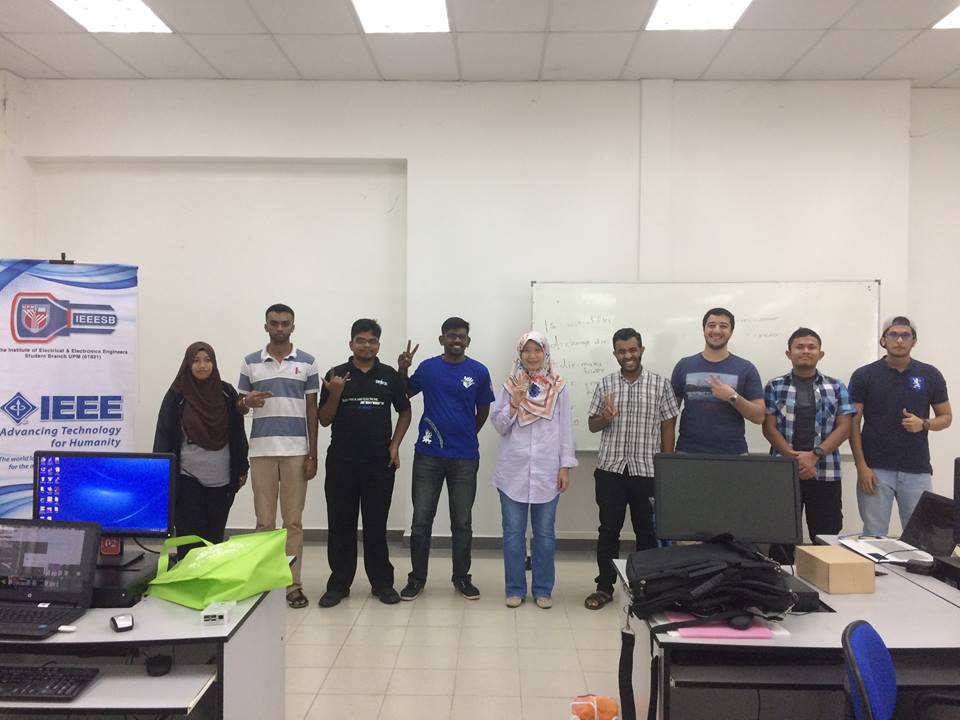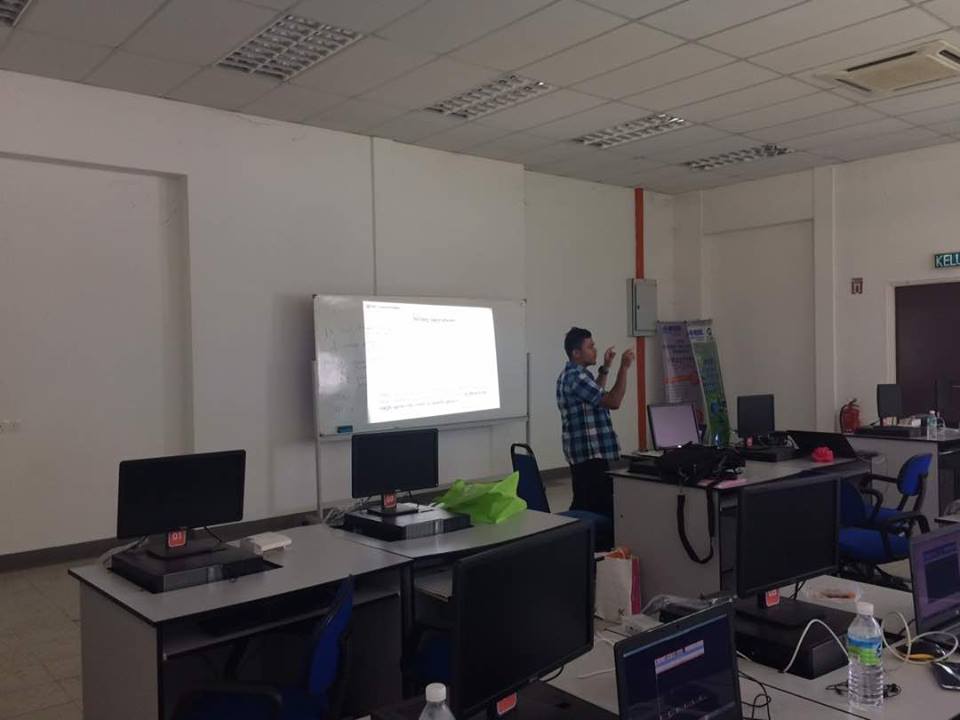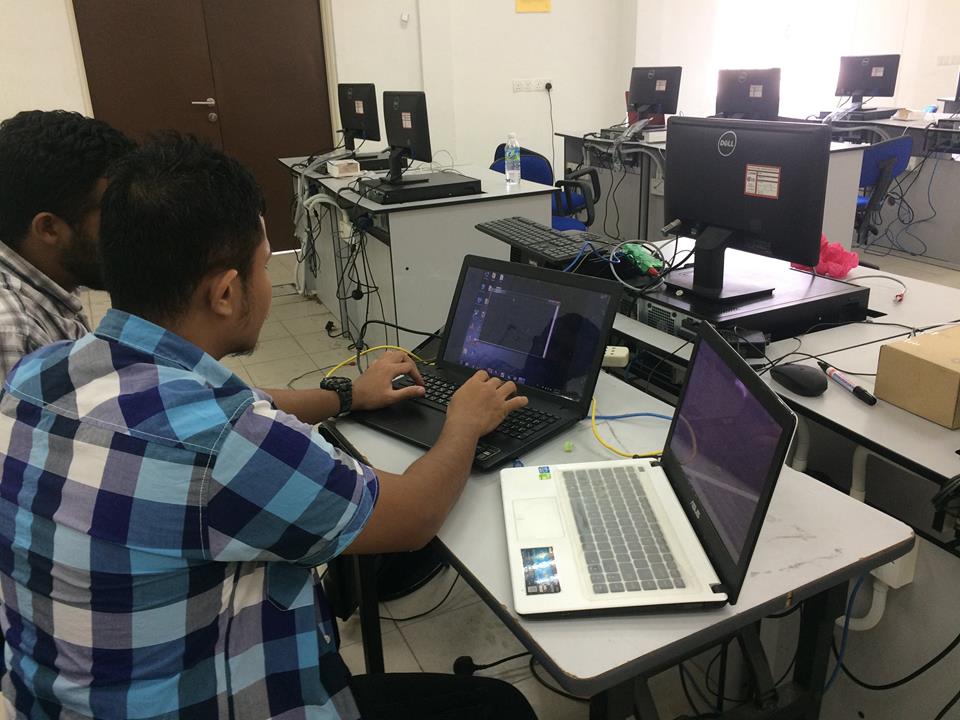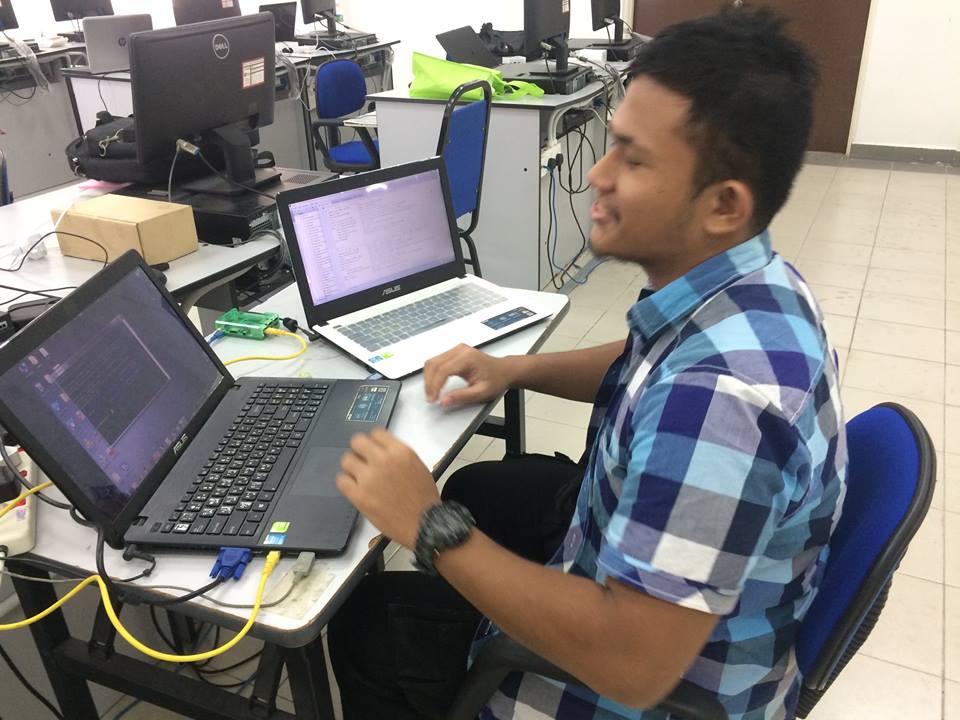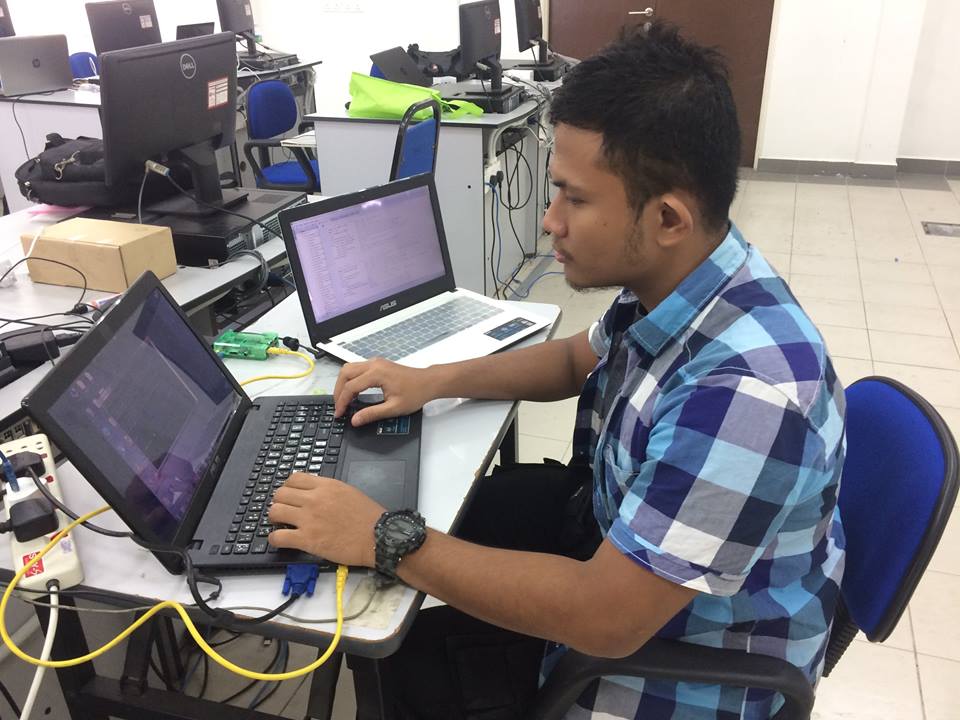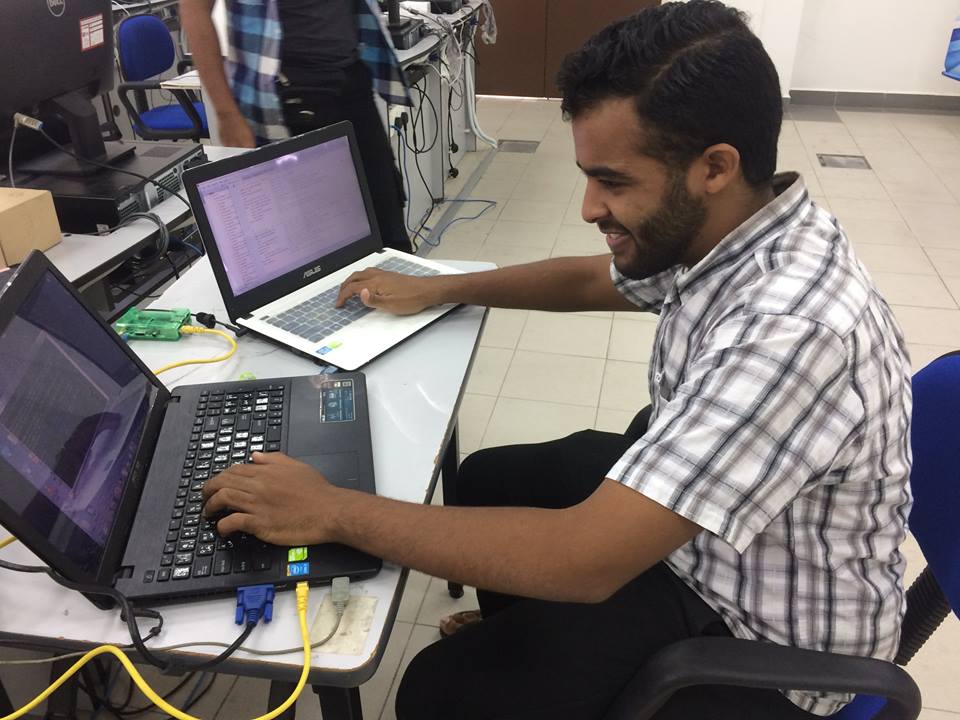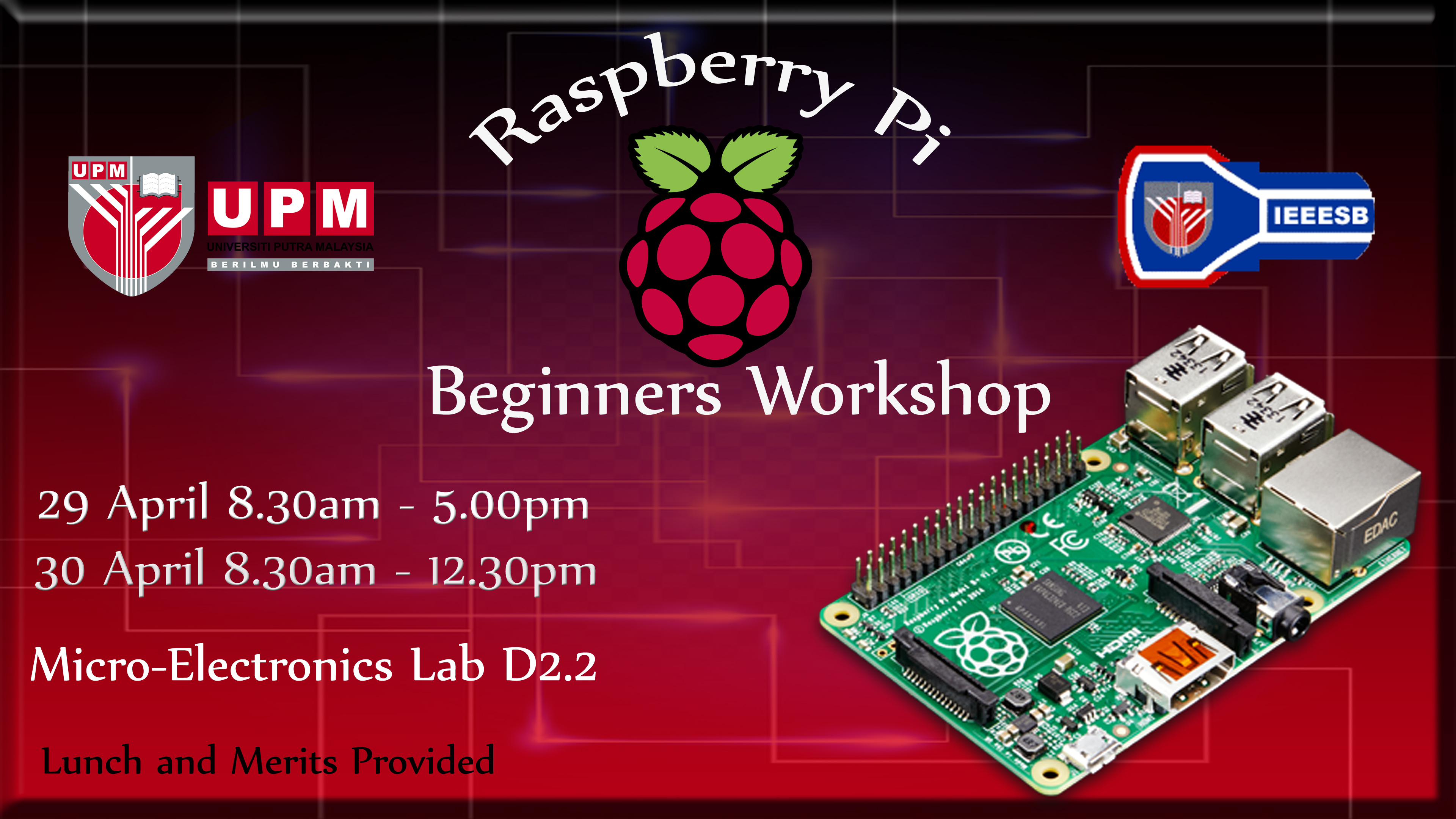
“Raspberry Pi for Beginners” Workshop helped the participants to develop their foundation in using a Rasberry pi 3 board, develop the engineering thinking skills, teamwork and leadership skills as the students were working in teams, exploring the Rasberry pi kit and basic electrical components. It gave the participants a chance to apply the fundamentals of electronics in an interesting way, which led to the participants being developed a game with the knowledge they obtained from the workshop under the supervision of our university student demonstrators with the main intention of using the “Learn by Doing” method as the technique.
Thus, the main aim of the workshop was to help the participants in understanding the concept of Raspberry Pi and develop the engineering thinking skills, teamwork and leadership skills necessary, as the students will be working in teams, exploring the Raspberry Pi kit and basic electrical components. Further, it provided an opportunity to apply fundamentals of electronics in an interesting outside of the lecture room paradigm. Thus, providing a space for participants to improve their creativity, test their knowledge and put their theories to test.
The workshop was organized by the Institute of Electrical and Electronics Engineers Student Branch Universiti Putra Malaysia (IEEESB UPM) and Department of Electrical and Electronics, Faculty of Engineering, UPM.
This workshop was targeted to Novice Electronics enthusiasts from 1st and 2nd year students of Bachelor of Engineering (Electrical and Electronics), UPM. There were 8 participants and it was conducted as a two day program on 15th and 16th of April 2017, at Microelectronics lab, Faculty of Engineering, UPM. The workshop was ended with a one on one session with Mr. Manoj Kumar, who is one of the most prominent young innovators in Malaysia.
All participants were given a software copy of all teaching material which contained all the modules which we taught at the workshop. A simple explanation of each code was also given to reduce the trouble in understanding the program code, thus, helped participants to focus on training and how to use the kit.
Hence, a beginner course was conducted where programming in python language was taught for the utilization of the Raspberry Pi and many projects were undertaken by the participants to use Raspberry Pi in different aspects.
The workshop contained the Introduction to UPM and IEEESB UPM, Introduction to Raspberry pi, and introduction to Linux operating system and Python Language. Further, it also had a project competition and concluded with a certificate awarding and a photo session.
At the end of the workshop, as the result, the participants were able to learn and explore microcontroller technology especially Raspberry Pi board and to apply the knowledge obtained to develop creatively. At the same time, the workshop helped to expose the participants to IEEE and IEEESB UPM, to develop teamwork and leadership skills and critical thinking skills of participants.
As an impact of the workshop, it was seen that the participants had an increase in capability of attempting the knowledge they got in their Final year Projects.
The workshop budget contained an income portions as well as the expenditure portion. The income was received in the form of Registration Fee from the participants. The expenditure of the workshop was covered partly by the department of Electrical and electronic, IEEE Student Branch UPM and the revenue earned from the registration. The workshop Income and Expenditure sheet is given in the Annex 1.
The main business model of this workshop was the future expansion and therefore, it did not generate any profit as an outcome. The total revenue was spent on the honorariums for the instructors of the workshop.
Further, the greatest obstacle of such workshop is the high capital investment that required for the RPI board, Ethernet cables, SD cards etc. However, this expense is considered as the capital investment of this workshop. Once this capital investment is made, the costs of conducting similar workshops are minimal. Thus, it gave the opportunity for us to achieve the target we had in the main business model of the workshop as all earnings generated from future workshops will be considered as the profit.
On the other hand, investing in the Raspberry Pi boards can also lead to collaborations between universities and institutions. Most IEEE Student Branches lack the financial strength to make the capital investment for a Raspberry Pi workshop. Therefore, due the capital investment made in the proposed workshop, in the future, we are able to offer our equipment as well as our resource personal to other IEEE student Branches, universities and institutions to conduct Raspberry Pi workshops. Such collaborations can bring profits as well as recognition to IEEESB UPM and Faculty of Engineering UPM.
A special thanks goes to the Head of the Department of Electrical and Electronics Engineering Assoc. Prof. Dr. Mohd. Amran b. Mohd. Radzi for funding the Raspberry Pi workshop and the councilor of IEEESB UPM, Dr. Noor Ain Bt. Kamsani, for her unwavering support to make the event a success.
